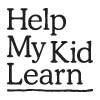What to do with this activity?
Perhaps English is not your first language, and maybe there is more than one language being spoken in your family home?
As a general rule, it is best for your child if you talk to them as much as possible in your own native language. Your child will benefit from you talking to them confidently through your first language. They will learn your first language. They will be ready to learn English when they start creche or school.
Do not be concerned if your child replies to you in a different language - whether your own language, in English, or in the language of your partner. Young children learn languages very quickly, much more quickly than adults. You are enriching their lives with language!
-
Why am I doing this?
Talking is one of the most important skills your child will learn. It seems to happen naturally, but in fact you have a very important role to play. Your baby will learn to talk by hearing other people talk. The more you talk with your baby and respond to their noises and babbles, the more you help them learn to communicate. This will help them in every aspect of their life.
-
How can I do more?
Songs and rhymes are especially good for children as the rhythms and repetitive language make it easier for babies to learn language skills. Babies love songs and rhymes, especially hearing the sound of your voice. This is a great way to help your child to talk and listen. Rhymes with actions explain what words mean - "pour me out" in "I'm a little teapot". You can also create sound effects when you are singing songs and saying rhymes. Use your hands to clap, your fingers to click and your mouth to make playful sounds and whistles.
Rate this activity
![]()
![]()
![]()
![]()
![]()
Based on 31 reviews
How would you rate it?
1 = Poor, 5 = Great.



